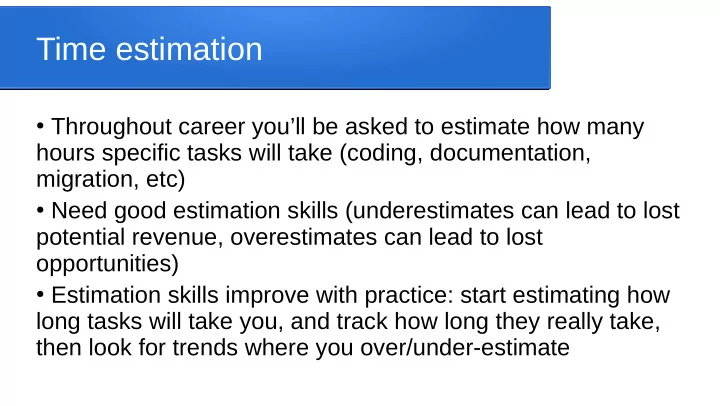

Time estimation ● Throughout career you’ll be asked to estimate how many hours specific tasks will take (coding, documentation, migration, etc) ● Need good estimation skills (underestimates can lead to lost potential revenue, overestimates can lead to lost opportunities) ● Estimation skills improve with practice: start estimating how long tasks will take you, and track how long they really take, then look for trends where you over/under-estimate
Estimation techniques ● A few broadly used approaches to help in estimation ● By analogy: compare to past tasks, and adjust based on relative size/difficulty (X took me 5 hours, this looks twice as long and 50% more difficult, so estimate 15 hours) ● By available resources: only $X available in budget so that’s what I’ll estimate ● To win: estimate based on trying to undercut competition ● By formula (see next slide)
Estimation by formula ● Searches will bring up a variety of different formula options for estimating required time, basically categorizing size, skills, and complexity using different factors then plug in your values
Reviewing your estimates later ● Need to track your time spent on the task if you want to check your estimates ● Many organizations require you to track time spent, so it can be billed to appropriate part of project/budget ● Different companies go with different granularity, e.g. track in 15 minute intervals, track in 30 minute intervals, etc
Sample time sheet/file ● Have columns for date, start time, end time, interruption time, project, and task description ● e.g. might say started at 1pm, finished at 4pm, had 45 minutes of interruptions (cuts down on complexity of tracking) ● If you can practice this over the next couple of years, you’ll be better prepared when you first have to do it “for real”
Recommend
More recommend